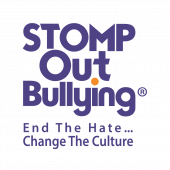
With the increased usage of smart phones and social media, students who are prone to bullying are likely to cyberbully.
And now we have students being educated online through various sites such as Zoon, Web Ex, Google Classroom assignments, Moodle, Minecraft for homeschooling and Microsoft Office 365 Home Schooling pilot program.
Zoom has already come under fire for the recent disruption of strangers who have hacked online business meetings with hateful and inappropriate comments. If Zoom is that easy to hack into, it’s likely to expect kids and teens trying to follow suit.
The New York City DOE has received various reports documenting issues that impact the security and privacy of the Zoom platform. Based on their review of these documented concerns, the DOE will no longer permit the use of Zoom.
While cyberbullying is a great concern, kids who can’t sleep, or who have completed their home studying may find additional screen time attractive and if the opportunity presents itself, cyberbullying can become one of their activities.
According to the American Adolescent Psychiatric Association, “stress and mental health conditions may be exacerbated by cyberbullying, particularly among those who have experienced emotional abuse.’
It all makes sense with a limitless amount of targets and child and teen bullies online. And with so many parents stressed out having to now teach their kids in the home schooling arena, parents may be exhausted and not paying attention to what their kids are doing online during non-school hours.
Although cyberbullying has been around for a long time, we’re living in unprecedented times and when kids are stressed out and bored the opportunity to cyberbully is present.
Parents of Asian American children have reported instances of their kids being mistreated and shunned — and not just by other kids. Many adults have been acting racist and calling the virus “The Chinese Virus” or “The Asian Virus.” This is wrong and unfair. This virus is no more the Asian or Chinese virus than it is the New York Virus. However kids learn this behavior at home and on the Internet. The more racism they show to others, this racist cruelty can end up online.
When kids are pulled out of the classroom and mandated to social distancing, they will be in front of digital devices even more than they’ve ever been. This gives them even more access to digital devices.
- Among high school students, 15.5% are cyberbullied and 20.2% are bullied on school property Center for Disease Control, 2017.
- The percentages of individuals who have experienced cyberbullying at some point in their lifetimes have nearly doubled (18% to 34%) from 2007-2016 Patchin & Hinduja, 2016.
Bullying Warning Signs
Parents, caregivers and educators should be on alert for behavior changes and other signs that a child is being bullied.
Signs may include:
- A decline in grades
- Unexplainable injuries
- Depression
- A change in eating habits and sleep patterns
- Feelings of helplessness or decreased self esteem
- Increased physical complaints (headaches, stomach upset, etc)
- School avoidance (When kids are in the classroom, 5.4 million students want to stay home every day or fear of being bullied.)
- Kids and teens experience self-destructive behaviors such as running away from home, self-harm or talking about suicide.
While there have not been any formal reports of an increase in cyberbullying, kids and teens just suddenly haven’t discontinued their behaviors. It’s unrealistic to think they would suddenly stop being cyberbullies. If they’ve cyberbullied before Covid-19 there is no reason to think that they would stop now.
What Parents and Educators Can Do
- Kids should be taught that if they wouldn't say something to someone's face, they shouldn't say it to them online, through texting, or posting in any other way.
- Digital Harassment is the perfect way for the online aggressors to remain anonymous. Being anonymous, there is no fear of punishment because they don't have to come face to face with their victim(s.)
- The very first thing parents must do is learn the Internet. In other words …Speak the lingo and know the game!!
If you don’t how will you help your children? If you do not work on a computer and the Internet regularly, there are libraries, schools, YMCAs and neighborhood associations who offer this instruction. - The second thing you must to is to communicate with your kids and teens. Let them know that it’s okay to come to you if they are being cyberbullied. Encourage them to tell you immediately if they are being digitally harassed, cyberbullied, cyberstalked or if they’ve been approached by a predator. Tell them you won’t be angry about anything. You just want to help them.
- During this unprecedented time where kids are spending their days online, educators keep close tabs on all online interactions and encourage students to send you screenshots or screen recordings of any rule violations they see to help you investigate and facilitate takedowns of problematic or abusive content.
- Be sure to keep your home computer(s) out in the open, such as a family room or kitchen.
- Encourage your child to alert you if they are aware of others who may be the victims of similar behavior.
- Explain that cyberbullying is harmful and unacceptable. Discuss appropriate online behavior and make it clear that there will be consequences for inappropriate behavior.
- Although it’s important to install parental control filtering software, it’s just as important for you to monitor your child’s computer. You want to respect your children’s privacy yet, your child’s safety may override these privacy concerns. Tell your child that you are not spying on them but you may review their online communications if you think there is reason for concern.
share:


Follow STOMP Out Bullying